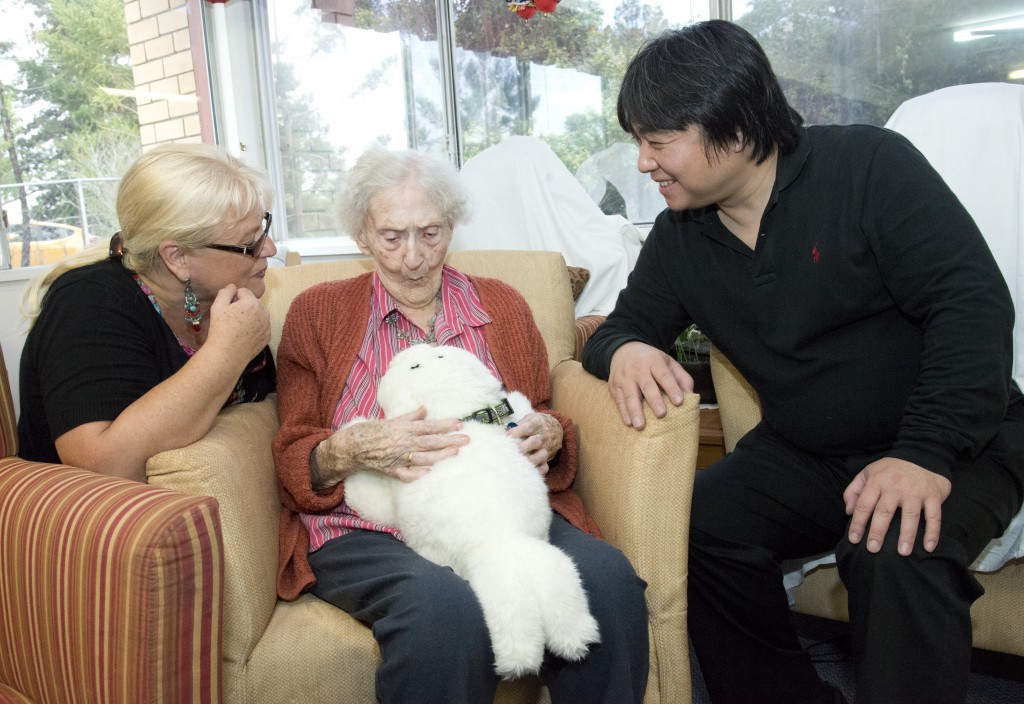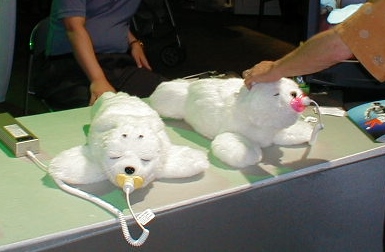Podcast: Play in new window
BOB HIRSHON (host):
Robotic therapy animals. I’m Bob Hirshon, and this is Science Update.

Therapy dogs that visit nursing homes have been shown to improve dementia patients’ quality of life. But the dogs are easily stressed out by all the attention. Now, researchers in Australia think robotic animals could have a similar effect. Griffith University social scientist Wendy Moyle says a stuffed robot, called PARO, responds to human touch, gaze, and voice.
WENDY MOYLE (Griffith University):
For example, if the older person strokes the back, the robot will respond by opening its eyes, looking at the person directly. Once the person starts looking at the robot, calling it by its name, it will immediately respond to the person by usually snuggling into them.
HIRSHON:
In a pilot study, Moyle and her colleagues found that after interacting with PARO, dementia patients’ anxiety levels decreased, they became more engaged, and took more pleasure in life. The researchers plan to assess the robot’s benefits in a much larger group of patients starting next year. I’m Bob Hirshon, for AAAS, the science society.

